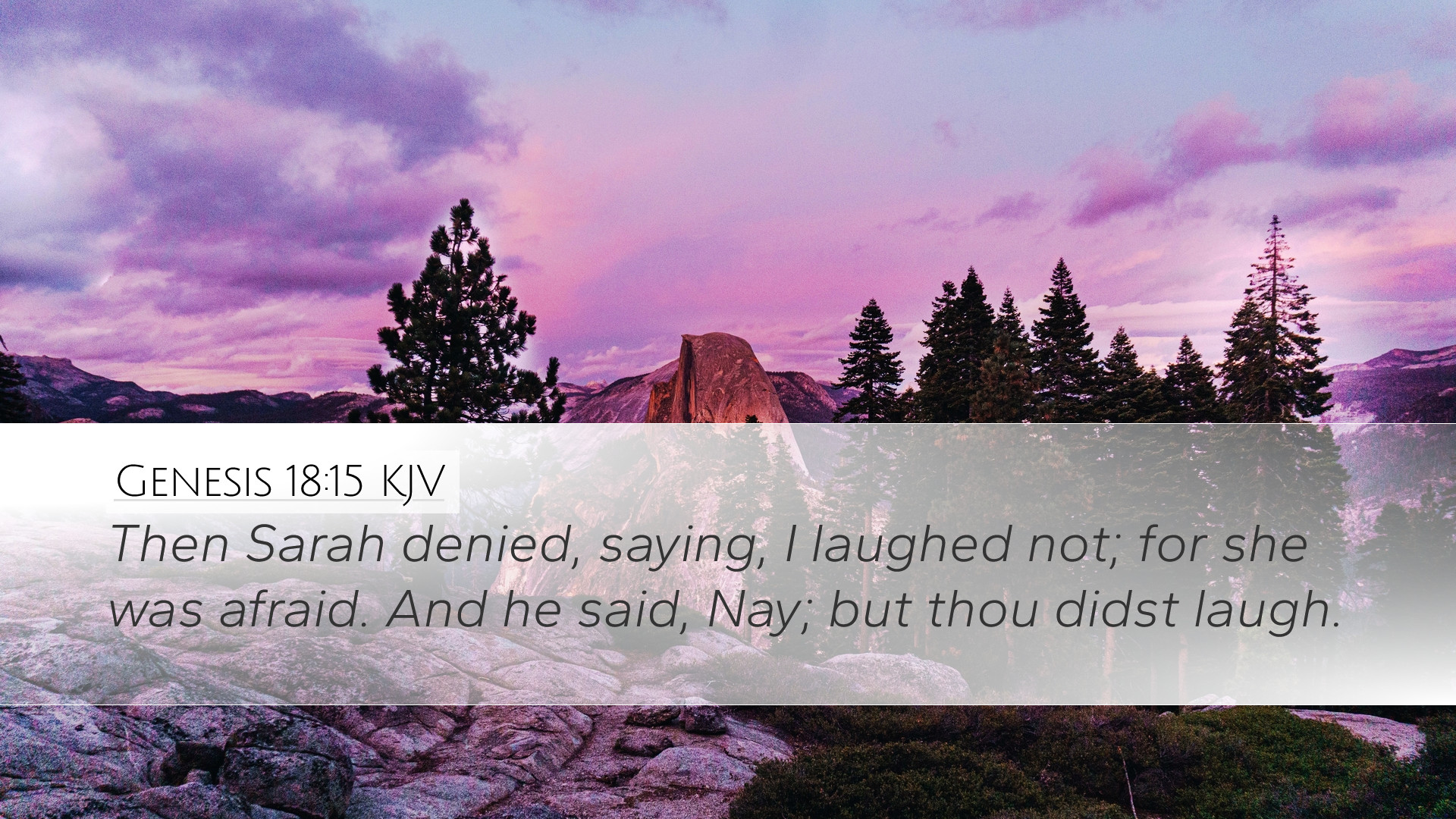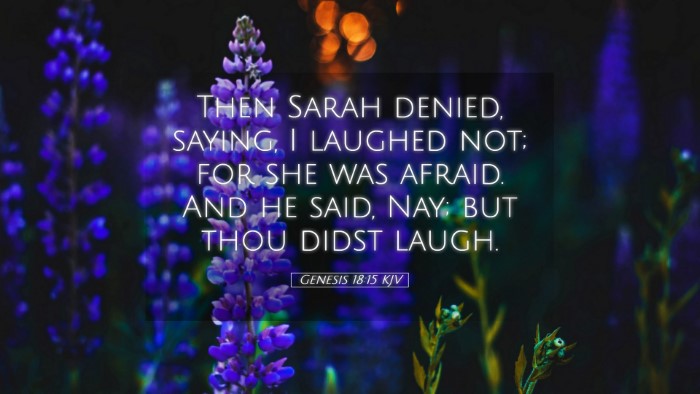Commentary on Genesis 18:15
Verse Context: Genesis 18:15 captures the moment when Sarah, hearing the promise of a child, laughs in disbelief at the idea of bearing a son in her old age. This verse is pivotal in illustrating themes of faith, doubt, and God's sovereignty in fulfilling His promises.
Key Insights
- Matthew Henry:
Henry emphasizes the incredulity of Sarah, rooted in her advanced age and the nature of her situation. He points out that her laugh represents a struggle between faith and doubt, a common human experience. Henry notes that God does not rebuke Sarah immediately for her laughter; instead, He gently confronts her disbelief, highlighting the patience of God in dealing with our weaknesses.
- Albert Barnes:
Barnes focuses on the significance of laughter in this context. He interprets Sarah's laughter as a reflection of her despair mixed with a desire for the promised joy. In his view, the inquiry "Is anything too hard for the Lord?" serves as a profound reminder of God's omnipotence. Barnes encourages readers to reflect on their own limitations contrasted with God's infinite abilities.
- Adam Clarke:
Clarke provides a historical perspective on the cultural implications of Sarah's actions. He discusses the essence of the name 'Isaac', which means laughter, and how it symbolizes the joy that will ultimately come from a moment of doubt. Clarke integrates the theological aspect, illustrating how God's plans often exceed human understanding, urging believers to trust in divine timing.
Theological Themes
The core themes drawn from Genesis 18:15 encompass God's faithfulness, human frailty, and the importance of trust in God's promises. Each commentator emphasizes the dynamic relationship between divine promise and human reaction:
- Faith vs. Doubt:
This story serves as an illustration of the struggle of faith amidst doubt. Sarah's initial reaction raises questions about the authenticity of God's promises, which theologians often relate to modern-day believers grappling with their challenges.
- God's Sovereignty:
The question "Is anything too hard for the Lord?" serves as a key affirmation of God’s omnipotence. This admonition is not only relayed to Sarah but resonates throughout biblical narratives, showing that God's plans are unfettered by human limitations.
- Patience of God:
In response to human wavering, God demonstrates a remarkable patience. This aspect is central to the character of God, as portrayed in the Scriptures, encouraging believers to recognize His ongoing engagement with human doubts.
Practical Applications
The insights gained from Genesis 18:15 can be applied in various ways for contemporary believers:
- Embrace Vulnerability:
Just like Sarah, believers are encouraged to acknowledge their doubts rather than suppress them. By voicing our uncertainties, we can invite God’s reassurance and guidance.
- Reflection on God's Promises:
Pastors and theologians can instruct congregants to meditate on the truths found in scripture, reminding them of God's faithfulness. Engaging with God’s promises fosters resilience against life's uncertainties.
- Encouraging Authenticity:
Church communities can cultivate environments where questioning and doubt are safe. Embracing our humanity allows for genuine faith to develop, which reflects the real journey of discipleship.
Conclusion
Genesis 18:15 encapsulates a profound moment of human dissonance against the backdrop of divine promise. By examining the perspectives of Matthew Henry, Albert Barnes, and Adam Clarke, we can appreciate the depth of struggle that lies within faith. This verse is a reminder that while doubt may emerge, God’s capability to fulfill His promises never falters. As pastors, students, and scholars, let us approach this narrative not only as an ancient text but as a living dialogue between the Almighty and His creation.


